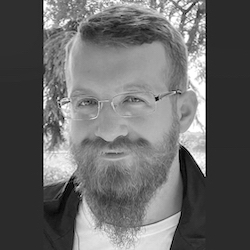Alessandro Armando Vigliano

Ph.D XXXVII
Supervisor: Barbara De Lotto
Phone: +39 0432 558236
Room: Rizzi L1-05-BE
Mail: vigliano.alessandroarmando@spes.uniud.it
Research Project
Multimessenger Transient Studies in the CTA Era
Multi-messenger astrophysics, a long-anticipated extension to traditional and multi-wavelength astronomy, has emerged in the last years as a distinct discipline providing unique and valuable insights into the properties and processes of the physical universe. These insights arise from the inherently complementary information carried by photons, gravitational waves, neutrinos, and cosmic rays about individual cosmic sources and source populations.
Among the various sources that will benefit from this type of study, fast transients are a particularly interesting class of phenomena: these consist mainly of Gamma Ray Bursts (GRBs), Fast Radio Bursts (FRBs) and gravitational wave phenomena.
Transient phenomena have been intensively studied over the years, with both satellite and ground observations. Particularly noteworthy, of this second category, are the Major Atmospheric Gamma Ray Cherenkov (MAGIC), High Energy Stereoscopic System (H.E.S.S.) and Cherenkov Telescope Array (CTA) telescopes, which use the atmosphere as a detection medium to obtain accurate observations at the highest energies (TeV). Of these three, the first two have been active for years, achieving brilliant results, while CTA is still under construction and will be the flagship instrument of the next generation VHE observations. Other noteworthy instruments for the study of these phenomena are the interferometers of the LIGO-Virgo collaboration which led to the first direct detection of gravitational waves originated from the coalescence of compact objects (binary systems of black holes and/or neutron stars), effectively starting a new era for multi-channel astronomy.
The multi-messenger and multi-wavelength study of transient phenomena is of fundamental importance to understand their origin and the physics that governs their sources and in order to do so, good observational strategies, involving different instruments, must be developed.
The objective of my PhD project is to exploit the excellent synergies of CTA with instruments such as LIGO-Virgo, KAGRA, HERMES, SVOM and AMEGO to study in depth the physics of fast transient astrophysical phenomena.
A most important aspect of the study of transient phenomena is their multi-channel observation and in particular the development of solid strategies that will allow the identification of the EM counterparties of GW events detected by facilities such as LIGO-Virgo. This will be extremely useful to raise the number of Electromagnetic counterparts of GW events and obtain better statistics (in addition to the very important information that the joint detections will bring us).
For this purpose the optimization of the so-called “Divergent mode” of CTA is being prepared. This will increase the field of view of the CTA instrument to search for the EM counterpart of GW events and for the detection of the VHE component for these phenomena.
Pointing speed and accuracy are a fundamental requirement for these studies to coordinate the observations of multiple telescopes (not all having large fields of view) and optimize the data. To this end, developing automated pre-selection procedures for important events, based on our understanding of the fundamental mechanisms behind them, is a fundamental strategy for the near future.
Topics:
- Participation on Data Taking shifts for LST and MAGIC
- Analysis of VHE gamma-ray data taken by MAGIC and LST
- Participation to the estimation of the transient EM and GW counterpart by CTA
- Optimisation of the Divergent Pointing to catch GRB and GW counterparts
- Modeling of fast transient multi-channel emissions
This project covers a broad spectrum of aspects of the study of fast transient phenomena, ranging from the theoretical modeling of such sources to the evaluation of the ability of future instruments to perform excellent measurements.ch sources to the evaluation of the ability of future instruments to perform excellent measurements.